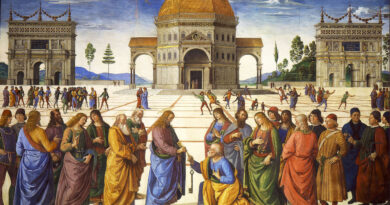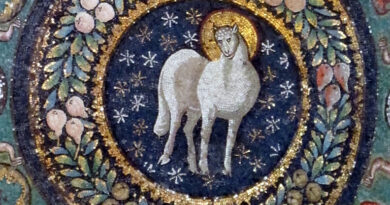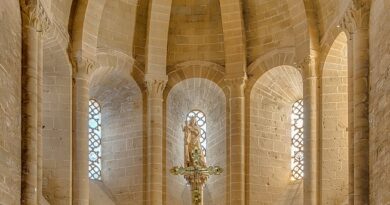Sixth Sunday of Ordinary Time/C
Massimo Palombella

(1395-1455), Sermon on the Mount, (Museo Nazionale di San Marco, Firenze)
In today’s Gospel (Lk 6,17.20-26) Jesus, to a large crowd of his disciples and a great multitude of people from all over Judea, in a flat place, speaks of the “beatitudes”.
It is easy, and even handy, to be satisfied with a “sociological” reading of what Jesus says, implicitly supporting the existence of a sort of “pole position” in relation to our salvation. Basically, if I am poor, hungry or crying, I find myself in a “privileged” position compared to those who have a comfortable life, do not suffer hunger and are serene in the face of life. But in this naive view we forget that none of us chooses our parents, decides where to be born, or the colour of our eyes or hair… When we are born, we find ourselves in a fundamentally non-chosen situation, a situation that becomes our great opportunity to build the persons we can and should be. In relation to “salvation”, to the true fulfilment of our life, the only thing that counts is the exercise of our freedom, that characteristic which, more than any other, makes us similar to God.
We can be born poor or rich, but that is not our choice. Instead, it is our choice to transform the situation in which we have found ourselves into an opportunity and not a ” curse “.
The characteristics that Jesus highlights, for which we can be called “blessed”, are nothing more than our choices, our responsibility. We will give an account not of our wealth or poverty but of how we have been able to use our freedom to make those choices that, in concreteness, tell the truth about us.
The Gradual of today’s celebration is taken from Psalm 76 (Ps 16:15-16) with the following text:
Tu es Deus, qui facis mirabilia solus, notam fecisti in populis virtutem tuam.
Liberasti in brachio tuo populum tuum, filios Israel et Ioseph.
(You are God, who alone do wondrous things: you made your power known among the nations.
With thy arm thou hast delivered thy people, the children of Israel and Joseph).
The attached music, in Gregorian Chant, is taken from the Graduale Triplex published in Solesmes in 1979. The interpretation is by the Nova Schola Gregoriana conducted by Alberto Turco. The musical track can be found on the CD ‘Cantemus Domino. La psalmodie du soliste dans la Messe’ published by Arion in 2010.
A blessed Sunday and heartfelt greetings.


